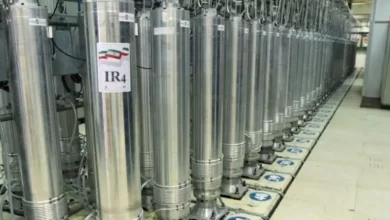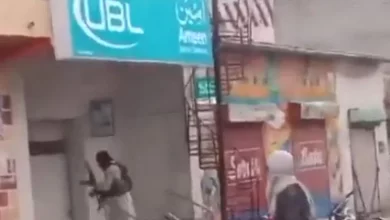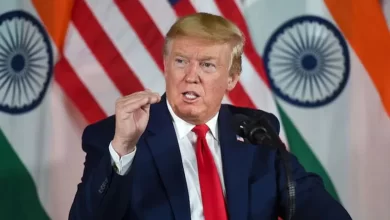The Ukrainian Muslims fighting against Russia

Those who have joined the war effort against Russian forces also fight past injustices and to return to Crimea.
Ali Khadzali stands among the blown-out buildings of his hometown, Kharkiv, about 50 kilometres (31 miles) from Ukraine’s border with Russia.
Since Russia’s full-scale invasion began in February, Khadzali has worked with a team of six volunteers to provide humanitarian assistance and evacuate people from areas hit hard by the fighting.
d of list
Khadzali, a warm, charming 30-year-old, wears a skullcap, a hoodie, and cargo pants. He is on a break between the day’s duties early one afternoon in mid-May. Russian forces have been pushed back from the city, but intense shelling has reduced much of the northern suburbs to debris.
The distant rumble of artillery still reverberates through this now empty neighbourhood. Nearby, a large playground with colourful swings and seesaws is strangely intact, framed by high-rise buildings blackened and scarred by weeks of bombardment.
Khadzali was born in Kharkiv, Ukraine’s second-largest city, to a Ukrainian mother and a Syrian father. He would regularly visit Syria until war broke out there in 2011. In 2015, Russia’s intervention in Syria’s now 11-year-old civil war tipped the scales in favour of the Assad regime.
“Both of my homelands, Ukraine and Syria, were invaded by Russians,” Khadzali says.
The previous year, the Maidan revolution saw Ukrainians take to the streets to protest against the pro-Russian government of President Victor Yanukovych. His forces responded with a brutal crackdown that killed more than 100 protesters and injured thousands. Yanukovych was overthrown and soon after, Russian-backed separatists took up arms in the Donbas regions of Donetsk and Luhansk, beginning an eight-year war and precursor to Russia’s invasion in February 2022.
Spurred on by his “Islamic brothers” to take on the new role, Khadzali had wanted to find a way to help his country and felt that he could best do that by supporting the small number of Muslim troops scattered in the Donbas. “What could be a better way than playing a part that connects with the army in a country at war?” says Khadzali.
As a chaplain, he led prayers, ensured the provision of halal foods, and offered religious instruction, psychological support, and guidance about human rights to troops. “Simply talking with troops,” he says, has been a crucial part of his duty. “That may even be the most important thing.”







